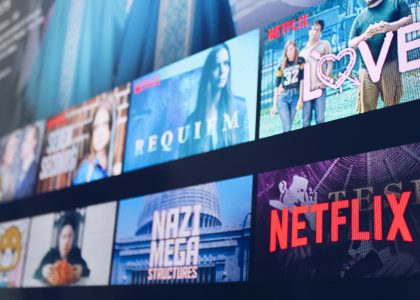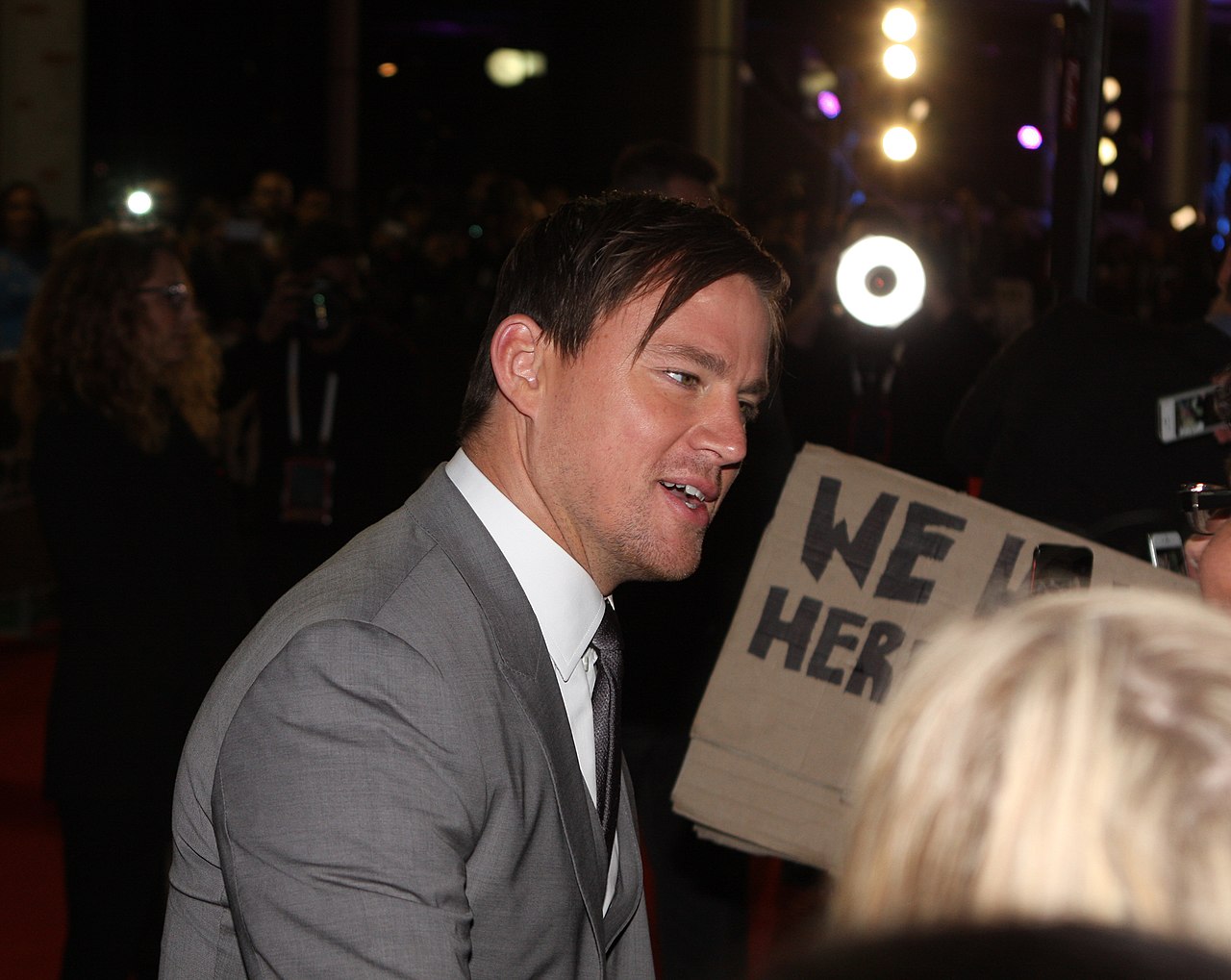Michael Skey is currently involved in a research project examining the Eurovision Song Contest, a music competition that attracts a global audience of around 170 million. As well as having an interest in how European and national identities are performed and discussed in relation to this media event, the research will also explore the significance of media-related activities to people’s lives. A recent trip to London to participate in a warm-up event demonstrated how people are assigned value in terms of their media presence, thereby consolidating the power of media institutions.
I’m standing in a queue of around 400 people not far from Oxford Street in London. It’s cold and while it’s not exactly raining, it’s not exactly dry either. I’ve been here for the best part of two hours. Alongside me, groups of friends are trying to keep each other’s spirits up with banter, jokes and, in some cases, singing along to songs played out of a mobile phone. The owner of the device is trying to use a plastic cup as a makeshift speaker to increase sound levels. It’s not working. In the time that we’ve been here, we’ve chatted to various people in the queue and, on the whole, it’s been quite a convivial wait. But as darkness falls and the alcohol wears off people are beginning to grumble and question why they are here. Abruptly, the queue shifts up 50 or so paces. Hope is renewed but soon dampened down by wind and rain. The queue shifts again. We’re on our way, albeit slowly. Again, questions are raised about the wisdom of spending one’s evening here.
Eventually, we reach the front of the queue and having shown evidence of our dedication – a stamp placed on our wrist earlier that afternoon – are allowed to enter an imposing old building, guarded by huge marble pillars. Almost immediately, we are relieved of pretty much everything we own. Bags, coats and, in particular, electronic devices are all verboten in this place, at least for tonight. As we shuffle through the entrance, it’s interesting to hear people’s conversations. A mixture of relief (we finally made it), anticipation (what’s it going to be like) and resentment (why did they make us wait so long). Inside, it’s a very different world. It’s a former church that for this occasion has been converted into a sound stage.
Downstairs people are crowded around a stage containing a drum kit and some microphones. Upstairs other people are looking down at that stage. It’s warm, tastefully lit, full of electronic recording equipment, patrolled by a combination of technicians and security guards and there’s an air of excitement in the general hubbub. After a short period, somebody moves on to the stage and introduces himself as the floor manager. There is a lot of talk about giving good reactions, performing for the cameras and going beserk. And after being warmed up for a short period (literally and metaphorically), the crowd do all of these things. They dance, they sing, they whoop and holler.
And this transformation is what I really found interesting about the whole night. In the queue outside, I heard the following comment, ‘Are we supposed to be grateful by the time we get in?’ and this wasn’t untypical. Yet 30 minutes later these same people were waving their arms in their air and cheering loudly at the behest of nondescript bloke who they had never met before and was probably partly responsible for keeping them out in the rain in the first place. In essence, what we were seeing was a fairly common trade off between media people and ordinary people. In exchange for standing out in the cold and being herded around like sheep and told what to do and when to do it, the ordinary people were permitted fleeting and well-regulated access to a live event featuring a putative media starlet. In the process, the ordinary people were also given the chance to appear on prime-time TV.
In pointing this out, I don’t claim to be offering any radical insights. But having also queued for two hours and listened to the moaning, what I did find surprising was how quickly people adopted their new roles as witnesses and cheerleaders. They had to be given some encouragement but it didn’t take much.
I was also interested to see how the chance to be on television was used to motivate the crowd as I’d assumed that in age when ordinary people appear in media as a matter of course (whether on social media or Youtube or countless reality shows) this might have been slightly less of a selling point. But mentions of roving cameras and prime-time seemed to get the crowd excited. And it should be noted that I wasn’t exactly immune to this, finding myself after the event energetically texting friends and family to look out for someone familiar on the telly that night (Just for the record, it wasn’t me!). Another lesson learned, then. Being on television still matters to people.
There is something to be said here about the nature of this particular event and the dedicated fans it attracts, although it should be noted that not all of the people who queued knew what they were about to see. In other words, some of them were there simply because it was going to be televised. Therefore, in trying to think about the spell that mainstream television continues to cast over substantial numbers of people, and not just fans of a particular show, genre or star, it’s worth returning to the idea of media people and ordinary people. This is a distinction that has been discussed in some detail by the media scholar Nick Couldry and his argument is that media institutions, as a whole, work to maintain this distinction as means of putting forward the idea that what happens within the media carries more weight than what happens anywhere else. In other words, those who appear in media are accorded more worth, more status, more value than those who don’t and, therefore, gaining access to media and those who operate effectively in media becomes a goal for ‘ordinary’ people. We can see this through the growth of celebrity culture and, in particular, the survey data that shows that young people increasingly want to become celebrities ‘when they grow up’. But there is also the fact that substantial numbers are documenting every aspect of their own lives and sharing it through media as a means of vindicating who they are and what they do.
Couldry also notes that when ordinary people enter media worlds they act as if they are moving into a sacred space, responding with reverence and/or hysteria depending on its significance to their lives. In creating and maintaining this division, media institutions are thus able to present themselves as fundamental to everything that goes on within a particular society and media professionals and experts become the high priests who can effectively operate in this rarefied environment. For instance, on the night in question, the main media personality was not the performer, who was a relative unknown handed the chance to cross from the ordinary to the media world and (perhaps) become a star. Instead, it was the individual who introduced her and this person was treated with much more deference than anyone else and permitted to make numerous mistakes (which became part of his ‘schtick’) when introducing the act. Alternatively, ordinary people who were identified as not fulfilling their role, by not wearing the right clothes or not dancing in the correct manner, were not permitted the same leeway and were asked to either get their act together or disappear.
And for the people who gave up their Sunday evening, in some cases their entire day to attend, was it worth it? Overheard conversations as we trooped out seemed to indicate it was. The chance to have been there as it happened, the chance to have been part of what others would be talking about the next day at work, at home, in the pub, the chance to tell an anecdote that very few others could tell, the chance to be on television, that seemingly made all the other stuff worthwhile. It is also another small demonstration of the power that media have in the contemporary era. The power not to tell us what to think or feel (although they may do this with varying degrees of success as well) but to indicate who and what matters and to once again have ordinary people orientating their own lives towards mediated output and the rules, categories and activities that are used to produce it.
And, just in case you were wondering, we were all there to see Britain’s entry for the 2014 Eurovision Song Contest unveiled.
Dr. Michael Skey is Lecturer in Media and Culture at the University of East Anglia. He is the author of National Belonging and Everyday Life (Palgrave, 2011).





